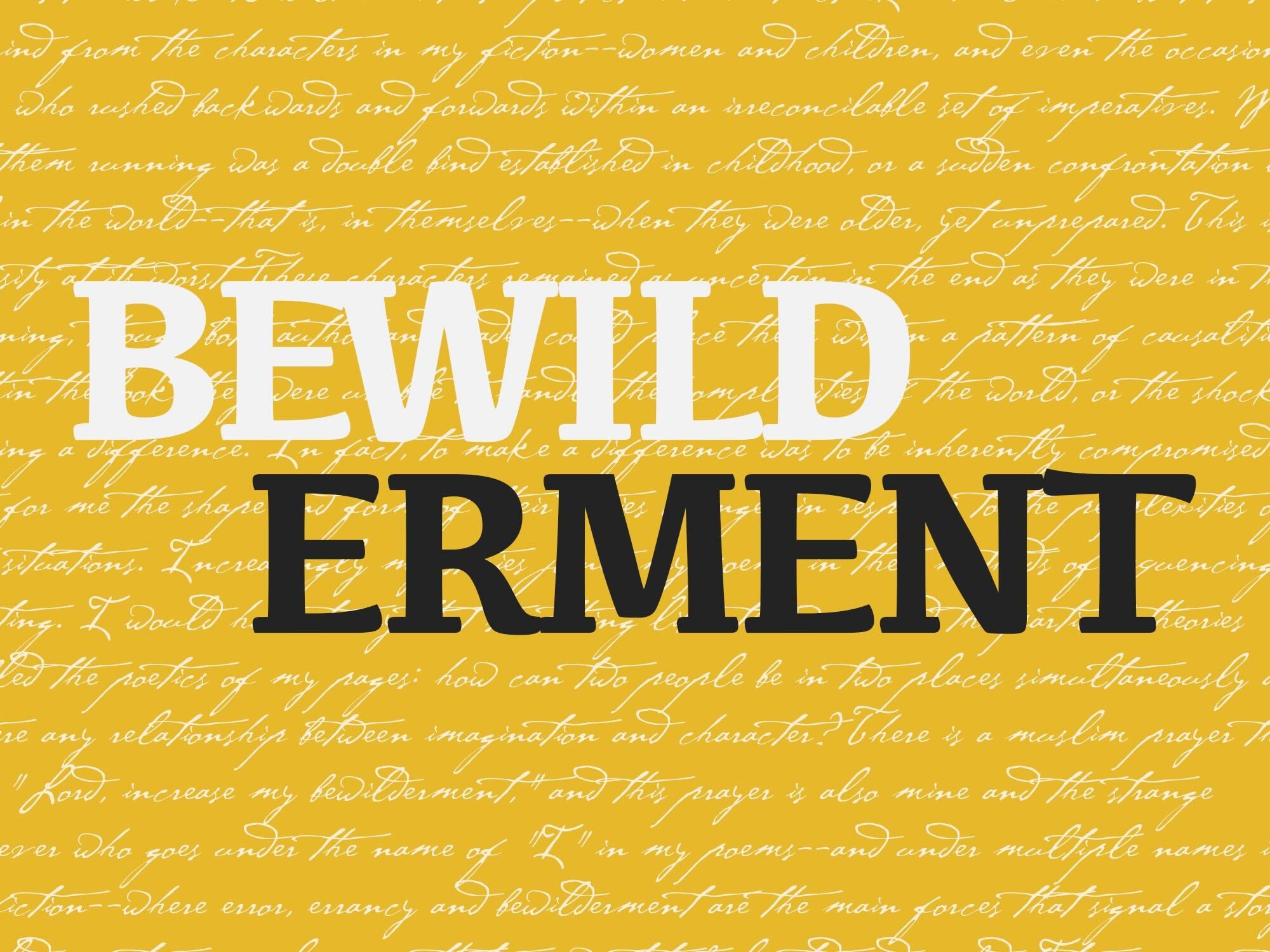Lately, I find that my days start and end in the dark. I wake up in the early mornings before it’s light out; in the evenings, I walk back to the Métro and every light source — storefronts, pharmacy signs, car headlights — seems to hang suspended in an oily blackness. It feels like I’m only drifting through the night, lost, unsure of what to do or where to go. In this mood, I’ve been thinking quite a bit about bewilderment — or, “Bewilderment.”
“Bewilderment,” written in 1999 by American experimental poet Fanny Howe, is an essay I return to frequently. The essay opens up boldly; its first two lines declare, “What I have been thinking about, lately, is bewilderment as a way of entering the day as much as the work. Bewilderment as a poetics and an ethics.”
Howe is an experimental poet who began her career in the 1960’s. Her work is known for its minimalism as well as the sharpness and ferocity of her language. Her work often adopts a meta approach to exploring the act of creation and recording itself.
In “Bewilderment,” Howe envisions a writing process that seeks to mimic the strangeness of the dream world, the surrender to the subconscious. Howe sees mystery, randomness and bewilderment not as weaknesses but as a means through which powerful pieces can be crafted. By exposing oneself to the subconscious, one can arrive closer to the truth of the feeling, which is often non-linear, random, contradictory and dreamlike.
“Bewilderment is an enchantment that follows a complete collapse of reference and reconcilability. It cracks open the dialectic and sees myriads all at once,” Howe writes. “Bewilderment circumambulates, believing that at the center of errant or circular movement, is the axis of reality.”
I’m interested in poets who, much like Howe, have used bewilderment as an ethics, a way of approaching this world. Jericho Brown is another such poet. He is best known for his collection “The Tradition,” which employs naturalistic imagery and mythology to explore the experience of being Black in America. The duplex, a combination of the sonnet, the ghazal and the blues, is a poetic form invented by Brown and debuted in the same collection.
In an interview with The Rumpus, Brown speaks of an exercise he gave to his students: he would invite each student to take a short poem and write the opposite of every word.
Obviously, the students would find themselves face-to-face with a wall of garbled nonsense. However, what would inevitably happen — and what Brown found most valuable about the process — was that the students would begin giving shape and narrative to the nonsense. In attempting to make sense of the nonsense, greater leaps of imagination are required; there is no easy, predictable route for where the story may go.
“In your revision of that mess of words, what you end up with is something much more subconscious,” Brown says.
For Brown, the point of the exercise was to get students to write lines that surprised themselves, to uncover more powerful writing — a dream, a narrative, a truth — through the act of bewilderment. As an ethics, one might do things that surprise oneself in order to learn something about oneself or to approach something stranger in oneself. The importance here is the emphasis on surprise and discovery.
Similarly, American poet Noah Falck has spoken of his reliance on a certain type of bewilderment in his own writing process. Falck is known for his dreamlike writing that often emulates the subconscious. “You Are In Nearly Every Future,” for example, is a fragmented poem of his that explores contemporary life through surreal images and is, in Falck’s words, “drunk on landscape and the noise of time.”
In an essay for the literary magazine Winter Tangerine, he outlines the revision process for his poem “Poem Excluding Romance.” Between the second and the final draft, Falck writes of just listening to the music of the poem to figure out where to go.
“It was at this point that I shifted and focused primarily on sound. I asked myself: How does this poem want to end? What is the music happening here? I ended up marrying the music and the ghost,” Falck writes.
Falck encourages the notion of simply listening to the song of what’s happening, following an unresolved question to new and unknown ends. The idea, again, is that in relinquishing control, one might discover something incredible.
During these winter months, every passing day gets darker and darker. All the usual signposts ahead are obscured. Everything seems a little stranger, a little more disorienting. In this cold season, nothing seems more hopeful than a willingness to simply lose one’s self to bewilderment.
Editor’s Note: This article is a review and includes subjective thoughts, opinions and critiques.
